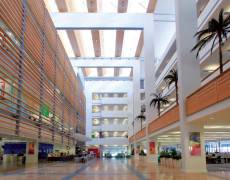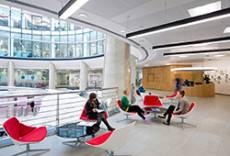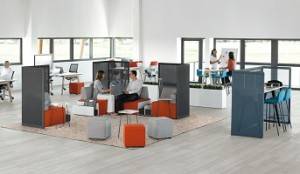May 15, 2014
Support for flexible working an increasing challenge for IT managers, claims survey
 One of the greatest challenges currently facing IT managers is providing secure and robust technological infrastructure for flexible working, and it is set to become even greater as more and more firms adopt Cloud based working, according to a new report from technology specialists ControlCircle. The survey of 250 UK based CIOs, ‘IT Growth and Transformation’ found that over the next five years the increasing mobility of the workforce is going to present them with a range of increasingly important challenges, with IT leaders predicting that security (56 percent), cloud (46 percent) and mobility (41 percent) set to become the biggest challenges they face. The survey also revealed that nearly half (48 percent) of respondents experience hourly, daily and weekly technology availability issues and a fifth (21 percent) experience business downtime daily or hourly as a result.
One of the greatest challenges currently facing IT managers is providing secure and robust technological infrastructure for flexible working, and it is set to become even greater as more and more firms adopt Cloud based working, according to a new report from technology specialists ControlCircle. The survey of 250 UK based CIOs, ‘IT Growth and Transformation’ found that over the next five years the increasing mobility of the workforce is going to present them with a range of increasingly important challenges, with IT leaders predicting that security (56 percent), cloud (46 percent) and mobility (41 percent) set to become the biggest challenges they face. The survey also revealed that nearly half (48 percent) of respondents experience hourly, daily and weekly technology availability issues and a fifth (21 percent) experience business downtime daily or hourly as a result.
























May 27, 2014
A third of UK workers would welcome a digital assistant to free up their time
by Mark Eltringham • Comment, News, Technology
A vision of the present. © Pixar Studios
In the 2008 Pixar film WALL-E, humans have fled the planet they have destroyed in an orgy of garbage-generating mass-consumerism and been reduced to morbidly obese, sedentary lumps living vicariously through screens and whose every need is catered for by the machines around them. Well, they say the best science fiction is really about the present day and sure enough, it appears that many of us are perfectly happy with the idea of suckling at the galvanised teat of a robot overlord. A new survey carried out by ClickSoftware claims that a third of UK employees would welcome the idea of having a personal digital assistant to help them carry out everyday tasks. Over half (58 percent) hope that intelligent apps will take on at least a tenth of their workload in the future, especially those tasks considered mundane and repetitive such as administration, work scheduling and planning journeys.
More →